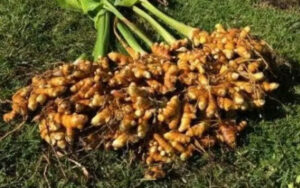Nature’s Medicine: Mallows and Their Remarkable Medical Properties
New Delhi: Mallows, commonly known as “Kharee” in India are flowering plants that belong to the Malvaceae family. While they are often admired for their beauty, mallows also possess a wide range of health and medical benefits that have been recognized for centuries.
One of the key benefits of mallows is their high content of antioxidants. Antioxidants help to protect the body from damage caused by free radicals which are harmful molecules that can contribute to the development of chronic diseases such as cancer and heart disease. Mallows are also rich in vitamins and minerals, including vitamin C, vitamin A, calcium and iron which are essential for maintaining good health.
Read More: Colorful Summer: Five Flowers to Add Vibrancy to Your Garden
In addition to their antioxidant properties mallows also have anti-inflammatory effects. This makes them particularly useful in the treatment of inflammatory conditions such as joint inflammation and gastritis. Mallows can help to reduce inflammation and alleviate symptoms such as pain and swelling.
Another benefit of mallows is their ability to promote digestive health. Mallows contain a type of soluble fiber known as mucilage, which can help to soothe and protect the lining of the digestive tract. This can be particularly beneficial for individuals suffering from conditions such as irritable bowel syndrome (IBS) or gastritis.
Mallows are also known for their diuretic properties, which means that they can help to increase the production of urine. This can be useful in the treatment of conditions such as urinary tract infections (UTIs) and kidney stones, as it can help to flush out bacteria and other harmful substances from the urinary tract.
Mallows are a versatile plant with a wide range of health and medical benefits. Whether consumed as a tea, used in cooking, or taken as a supplement, mallows can be a valuable addition to a healthy lifestyle.

















